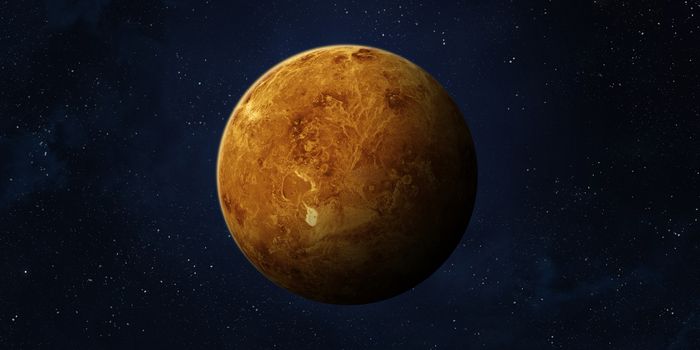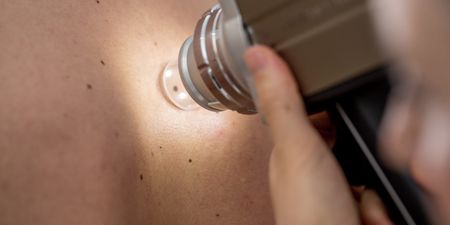Alright, who had ‘Aliens on Venus’ on their 2020 Bingo card?
Signs of alien life have been detected on Venus, according to a new discovery.
Astronomers from Cardiff University have discovered a rare molecule in the clouds of Venus, suggesting that colonies of microbes could be living in the oxygen-free environment.
Although life could not survive on Venus’s surface (which has a mean temperature of around 464C), scientists believe that living organisms could exist high up in the planet’s atmosphere.
Sky News reports that the team of scientists made the discovery after becoming aware of phosphine gas in Venus’s clouds. This same gas is produced on Earth by living microbes existing in oxygen-free environments.
Study lead Professor Jane Greaves said the discovery was almost made, well, almost by accident.
“This was an experiment made out of pure curiosity, really – taking advantage of the JCMT’s [telescope] powerful technology,” she said.
“I thought we’d just be able to rule out extreme scenarios, like the clouds being stuffed full of organisms. When we got the first hints of phosphine in Venus’ spectrum, it was a shock!”
The team then went about trying to find out where the gas had come from. They said that natural phenomena couldn’t be ruled out, although other scientists have argued that such gasses could not be produced naturally in Venus’s atmosphere.
Following the discovery, president of the Royal Astronomical Society Professor Emma Bunce called for a new mission to the planet.
“A key question in science is whether life exists beyond Earth, and the discovery by Professor Jane Greaves and her team is a key step forward in that quest,” she said.
“I’m particularly delighted to see UK scientists leading such an important breakthrough – something that makes a strong case for a return space mission to Venus.”
Sure, anything else to spice up the year.


















































